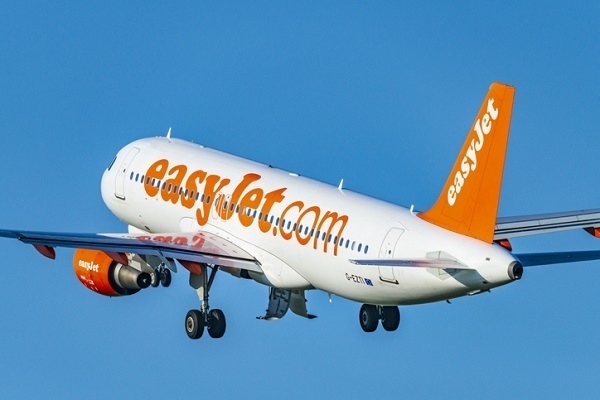ii view: easyJet focuses on growing ancillary revenues
30th May 2022 11:45
by Keith Bowman from interactive investor
Shares for this low-cost airline are down by more than a third over the last year. We assess prospects.

First-half results to 31 March
- Revenue up 524% to £1.5 billion
- Pre-tax loss of £557 million, down from a loss of £645 million last year
Guidance:
- Expects to operate at 90% of full-year 2019 capacity in the third quarter
Chief executive Johan Lundgren said: “easyJet has reduced its losses year on year, at the better end of guidance. The pent-up demand and removal of travel restrictions provided for a strong and sustained recovery in trading, which has been further boosted as result of our actions.”
“And so, as we return to a more normal summer season, we are ready to capture the increased levels of demand right across our network. We are confident in our plans for summer, which will see us reaching near 2019 flying levels and look forward to competing with our renewed strengths as a winner in the post-pandemic recovery of European aviation.”
ii round-up:
Launched in 1995 and floated on the London Stock Exchange in 2000, easyJet (LSE:EZJ) is a short-haul European airline operating a fleet of Airbus aircraft.
In its last full pre-pandemic financial year to the end of September 2019, it flew 96.1 million passengers and recorded revenues of over £6 billion.
For a round-up of these latest results, please click here.
ii view:
easyJet currently operates a fleet of 322 aircraft, with an average age of 8.9 years. Its strategy initiatives include: a focus on its network strategy or moving aircraft to airports of higher demand; growing its easyJet holidays business in partnership with major hotel brands such as InterContinental Hotels Group (LSE:IHG) and Accor SA (EURONEXT:AC); and retaining a strong focus on costs.
For investors, outlook uncertainty and the number of factors outside the airline’s control remain high. Consumers and businesses are now pressured by rising prices, with UK and European interest rates also expected to rise further. A war in Ukraine and the broader economic recovery from the pandemic have resulted in higher fuel prices, while concerns over the pandemic cannot be completely dismissed given the recent hike in staff infections.
- The UK shares three pros have snapped up in this volatile market
- Tips for recession-proofing a portfolio: where to start?
More favourably, a recovery from the pandemic is being seen. Management initiatives to raise ancillary or additional revenues such as those for baggage look to be enjoying success, while some addressing of elevated fuel prices has been made via hedging.
On balance, and while a degree of caution still appears sensible, a current consensus analyst estimate of fair value at over £7 per share looks to give grounds for longer-term optimism.
Positives:
- Reduced net debt
- Growing its holidays business
Negatives:
- Uncertain economic outlook
- Factors outside management’s control, such as the weather, can hinder performance
The average rating of stock market analysts:
Buy
These articles are provided for information purposes only. Occasionally, an opinion about whether to buy or sell a specific investment may be provided by third parties. The content is not intended to be a personal recommendation to buy or sell any financial instrument or product, or to adopt any investment strategy as it is not provided based on an assessment of your investing knowledge and experience, your financial situation or your investment objectives. The value of your investments, and the income derived from them, may go down as well as up. You may not get back all the money that you invest. The investments referred to in this article may not be suitable for all investors, and if in doubt, an investor should seek advice from a qualified investment adviser.
Full performance can be found on the company or index summary page on the interactive investor website. Simply click on the company's or index name highlighted in the article.